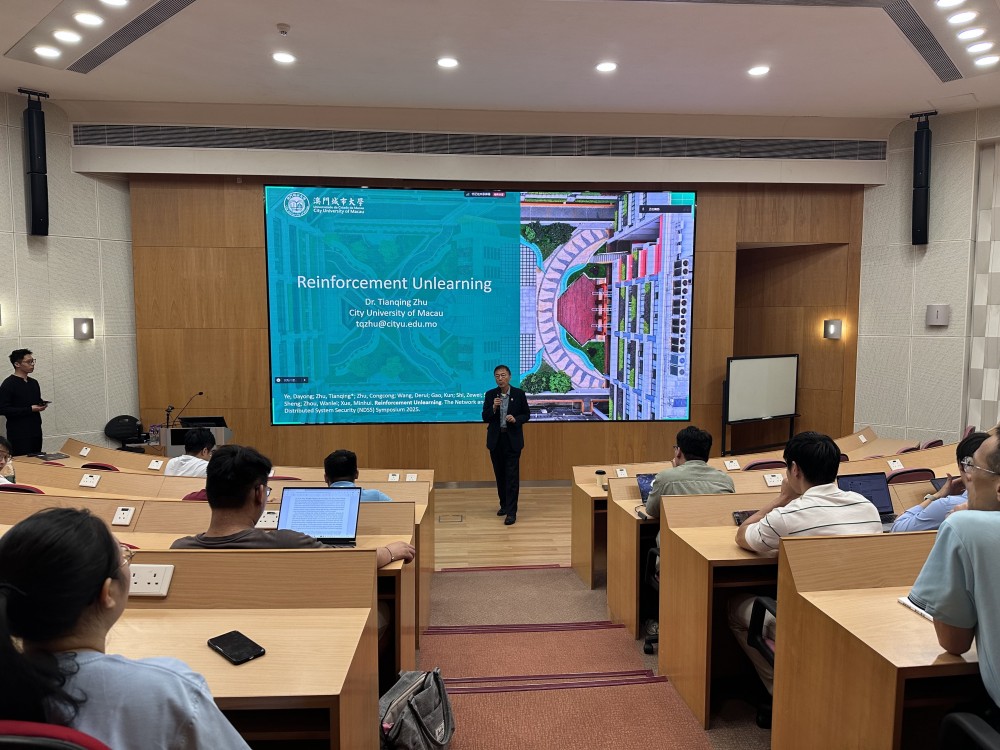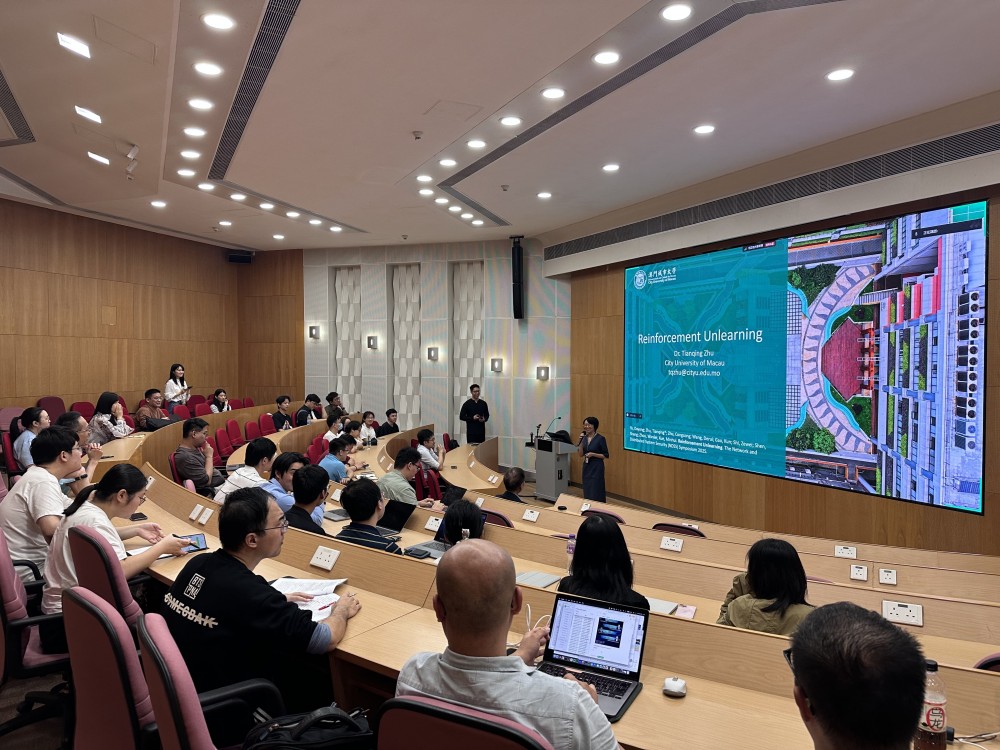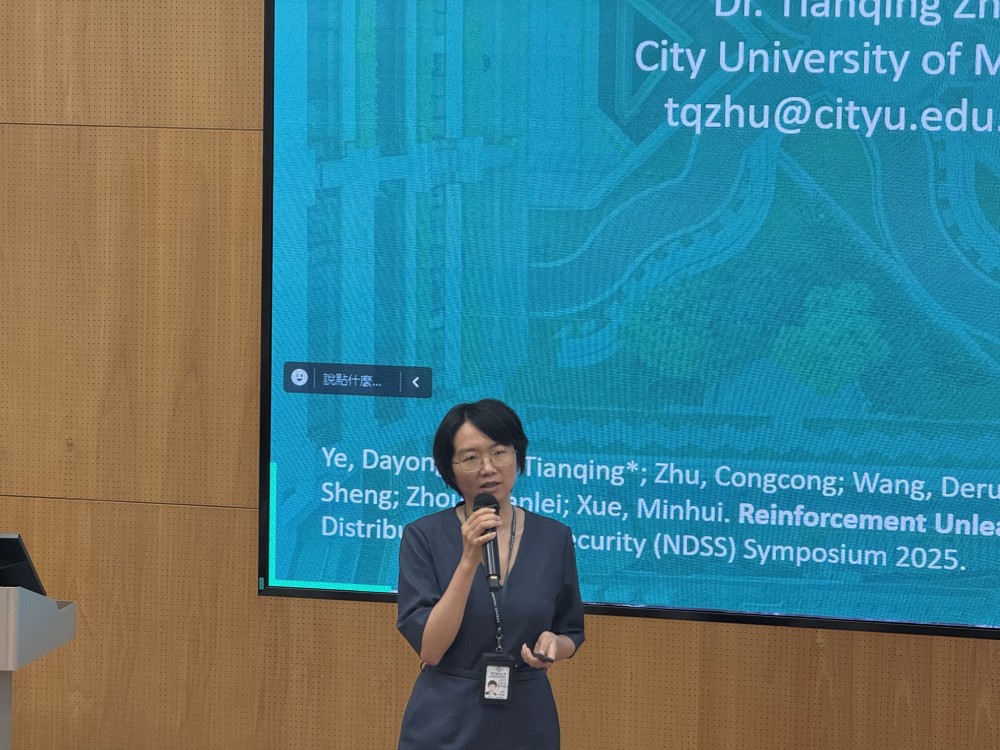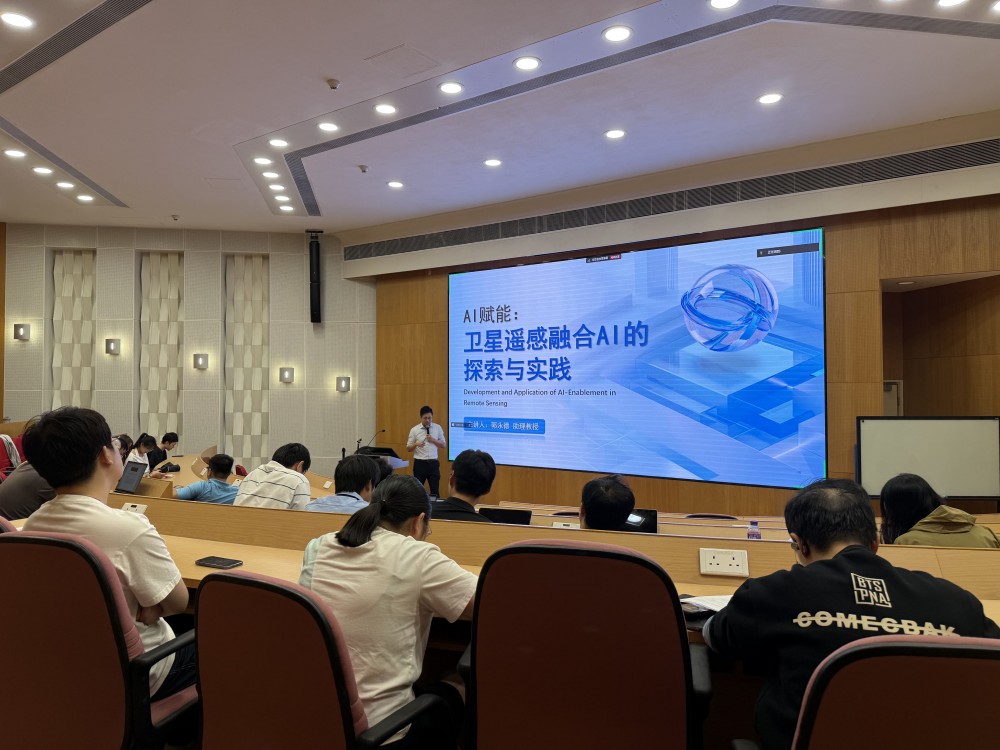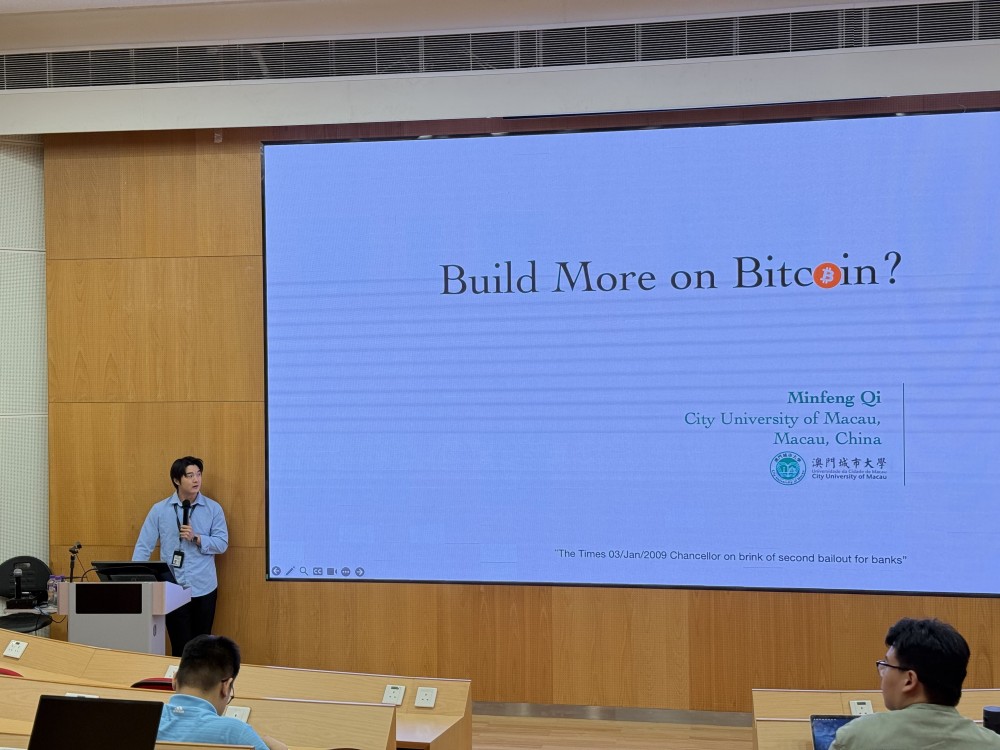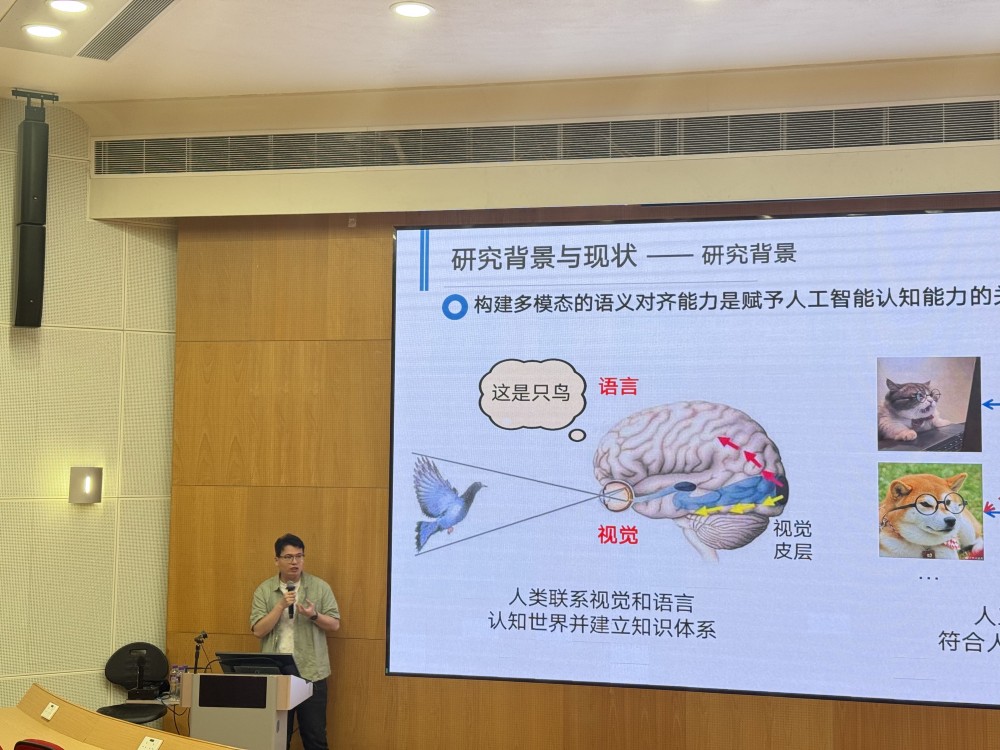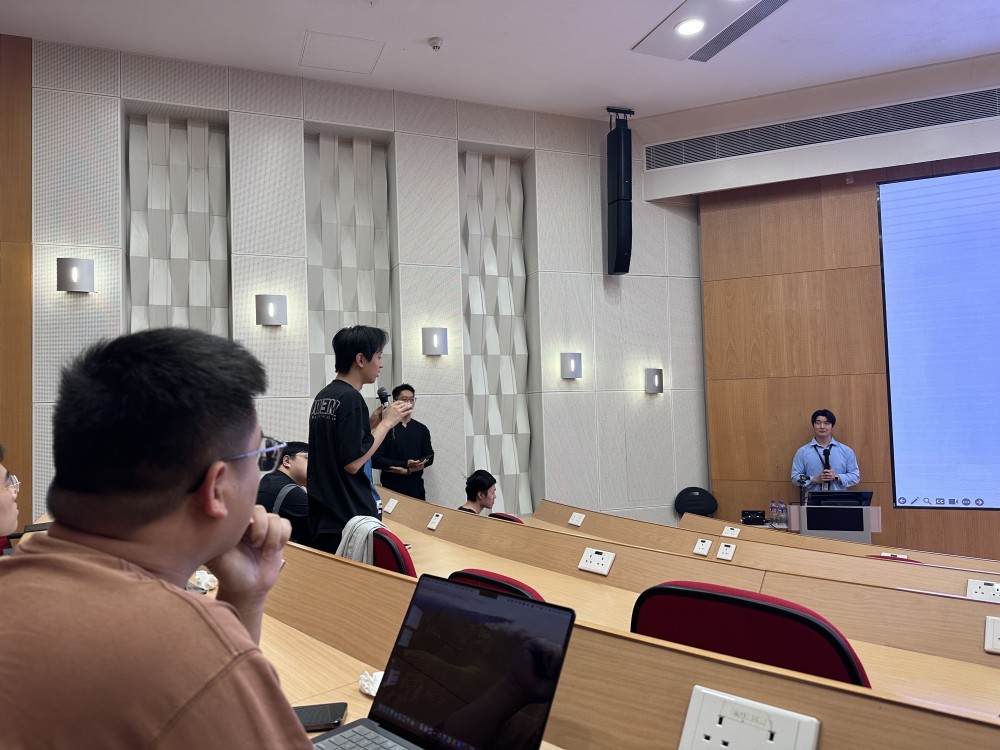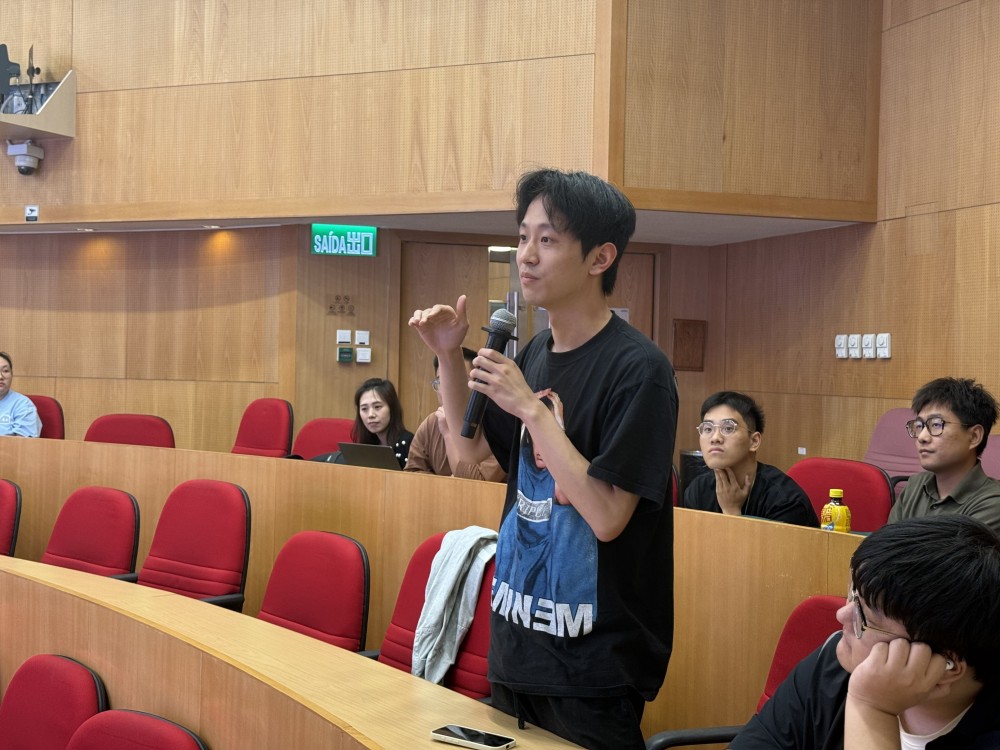On the afternoon of May 9, 2025, the Faculty of Data Science held an academic salon at the Ho Yin Conference Centre HG01. The opening speech for this academic salon was delivered by the vice-rector of City University of Macau and Dean of the faculty of Data Science, Professor Wanlei Zhou and featured four distinguished speakers: Associate Dean Professor Tianqing Zhu, Course Director Assistant Professor Weng Tak Kuok, Assistant Professor Minfeng Qi, and Assistant Professor Hongguang Zhu. They respectively presented four cutting-edge topics: "Reinforcement Unlearning", "Integration and Practice of Satellite Remote Sensing with AI", "Build More on Bitcoin?" and "Semantic Alignment and Knowledge Update in Multi-modal Contexts".
Associate Dean Professor Tianqing Zhu started the salon with her "Reinforcement Unlearning" presentation. She explained the concept and applications of reinforcement learning, as well as the significance of machine unlearning. Two novel methods proposed by her, the Decremental Reinforcement Learning-based Approach and Poisoning-based Approach, were detailed. Experimental results were also presented to demonstrate their effectiveness. Her speech provided new solutions for privacy protection and model optimization in the field of artificial intelligence.
Assistant Professor Weng Tak Kuok, Course Director, then shared on the topic of "The Integration and Practice of Satellite Remote Sensing with AI". He first analyzed the characteristics and advantages of remote sensing technology, as well as the challenges in traditional data processing. Then, he introduced successful cases of AI-based remote sensing applications in various fields such as agricultural monitoring and ecological assessment. His presentation also included an outlook on the future development of remote sensing technology, offering valuable insights for researchers in related fields.
Assistant Professor Minfeng Qi focused on "Build More on Bitcoin?" in his presentation. He began by introducing the basic concepts and logic of Bitcoin and then delved into the analysis of extension technologies on Bitcoin, such as inscription and BRC20, as well as Layer-2 expansion technologies. He particularly highlighted BRC20 security issues. His sharing provided the audience with frontier information and unique perspectives on blockchain technology.
Lastly, Assistant Professor Hongguang Zhu presented on "Semantic Alignment and Knowledge Update in Multi-modal Contexts". He comprehensively explained relevant research works and achievements from four dimensions: "single, multi, increment, and decrement". These included cross-modal semantic alignment via external attention aggregation, adaptive multi-expert collaboration for combined modal semantic alignment, semantic incremental alignment in visual and linguistic modalities, and secure semantic concept erasure for content generation. His research not only holds theoretical innovation but also offers practical value.
After each presentation, there was a lively interaction between the speakers and the audience. The academic salon broadened the horizons of the attendees, allowing them to engage with state-of-the-art theories and technologies. It also promoted interdisciplinary collaboration and innovation, inspiring researchers in related fields to explore further.

